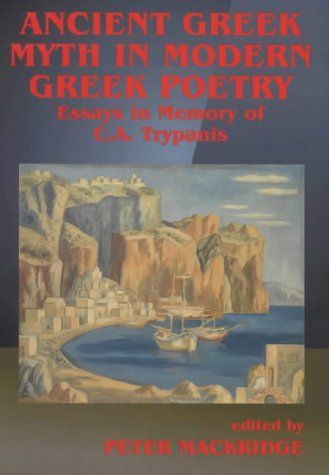
Ancient Greek Myth in Modern Greek Poetry Essays in Memory of C.A. Trypanis
Greece is a land of myth, and Greek poetry since the sixteenth century has constantly exploited allusions to the myths of the ancient Greeks. The consciousness of being the linguistic and cultural descendants of the Classical Greeks, and of inhabiting the same space in which the ancients had lived and dreamed, was real enough in sixteenth- and seventeenth-century Greece, even though it was confined to a small intellectual elite. But it was during the decades leading up to the outbreak of the Greek War of Independence from the Ottoman Empire in 1821 that, under the influence of neo-classical and Romantic movements in the West, it became de rigueur for the Greeks to discover and take pride in the ancient history, culture and mythology of the land in which they lived. Since then, Greek poets have constantly used the ancient myths as a warp on which to weave their poetry, whether the mythical heroes and heroines are treated as human archetypes or as pseudo-divine beings to be demythologized and brought down to earth. This volume contains essays by fifteen scholars, some of them long-established critics and translators such as Edmund Keeley, Peter Bien and the late Philip Sherrard, some of them academics in mid-career, and others having recently completed their doctorates. One essay deals with myth in the Cretan Renaissance (sixteenth-seventeenth centuries), while the rest cover the use of ancient myth by nineteenth- and twentieth-century poets. Some essays deal with individual mythical figures such as Odysseus, Orpheus, Prometheus and Aphrodite, while others deal with the problematic issue of the use of myth by Greek women poets. Peter Bien rounds off the discussion by comparing attitudes to the ancient Greeks as embodied in English and modern Greek poetry.